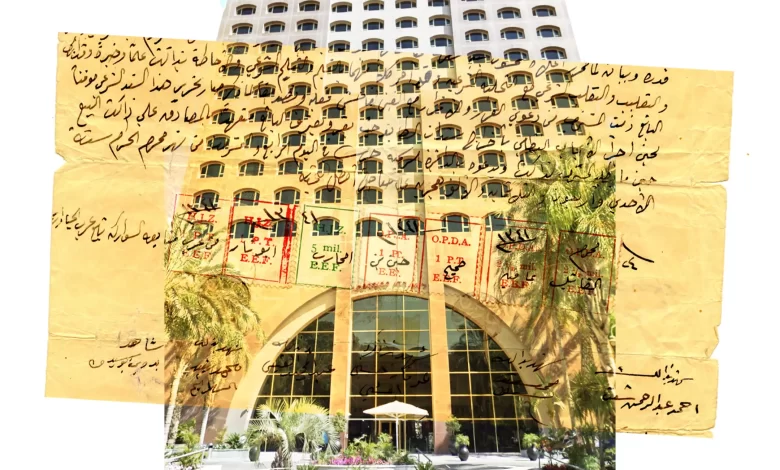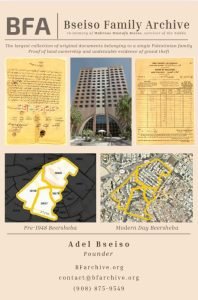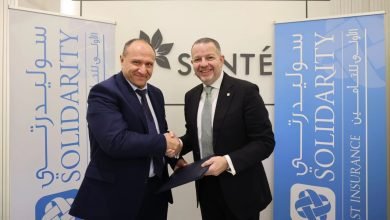
Jordan Daily – A landmark archive documenting extensive Palestinian land ownership prior to the 1948 Nakba was unveiled on May 15,at the National Press Club. The event, co-hosted by the Bseiso Family Archive (BFA) and the Arab Center Washington DC (ACW), featured the largest authenticated collection of pre-1948 Palestinian land documents held by a single family.
The archive, compiled by Adel Bseiso—grandson of southern Palestine landowner Mahrous Mustafa Bseiso—includes Hijjeh deeds, Ottoman tax records, maps, surveys, and correspondence. It sheds light on the legal structure that governed land ownership before the establishment of Israel and offers what organizers called “irrefutable evidence” of Palestinian dispossession.
“This archive is not just about the past—it’s about planting the seeds for justice, reparation, and the future of Palestine,” Bseiso said in a statement.

The collection will be housed at Columbia University’s Edward Said Modern Arab Studies Collection, forming the first Digital Library Collection of its kind. It is now accessible to the public through BFArchive.org.
Jonathan Kuttab, a leading expert on Palestinian land law and ACW fellow, explained how land ownership in Ottoman and British Mandate Palestine was documented through systems like the Tapu registry. “These records are legally and historically significant,” Kuttab said. “They demonstrate how Palestinians maintained land ownership within a functioning legal structure, even amid colonial governance.”
Panelists at the event included Harvard PhD candidate Hanna Alshaikh, political science lecturer Samah Elhajibrahim, and Kuttab. The panel discussed the Nakba’s legal and political legacy, moderated by ACW Executive Director Khalil E. Jahshan.
“The Bseiso family’s case is a vivid representation of what the entire Palestinian population experienced since the Nakba,” said Jahshan. “This archive helps counter decades of historical erasure.”
Alshaikh called the Nakba “an ongoing process of displacement, land theft, and erasure,” while Elhajibrahim said archives like the BFA are vital for documenting the Nakba as a “living reality.”
“This archive provides tools for justice and remembrance—and reminds the world that the right to return is not only symbolic; it is substantiated and documented,” Elhajibrahim said.
Bseiso said the family’s land near Beersheba was transformed in the early 20th century into productive farmland and mills, a legacy now preserved and shared with the world.
The BFA aims to inspire other Palestinian families to document their histories and challenge dominant narratives of loss. Its unveiling comes amid rising global attention to the Palestinian cause.
For access to the archive, visit BFArchive.org.

